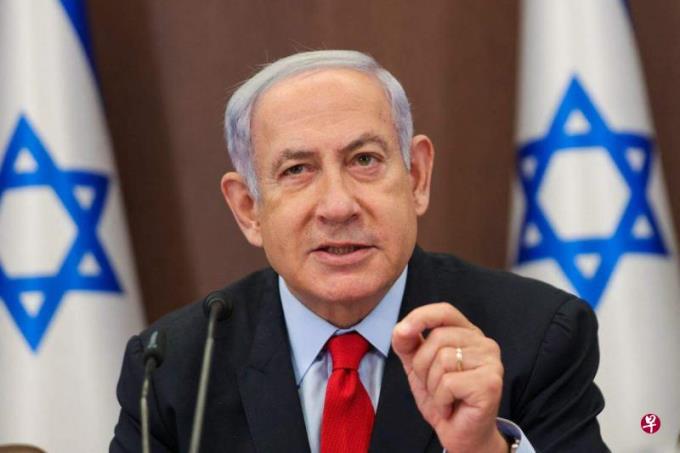
On July 24, the Israeli Congress used a simple majority to restrict the checks and balances of the judicial power through the new law, and canceled the power of the Israeli Supreme Court to veto the power of the government, so as to add fuel to the fire of judicial reform for half a year.Since the opposition has already appealed to the Supreme Court, the Supreme Court faces a problem of conflict of interest: it must make a judgment on the law that involves the reduction of its power.The legal basis of the Supreme Court's decision, and whether the government will accept the ruling will inevitably make the situation even more turbulent.In other words, the process of judicial reform promoted by Prime Minister Negama has now burst into a constitutional crisis that is not easy to resolve.
The new law passed on July 24 is just part of the judicial reform of the Neitana government. Other judicial reform content to be implemented also includes: weakening the power of the Supreme Court to veto the power of Congress legislation and improve the power of the government's appointment of judges.And the cancellation of the provisions of the judicial advice of the General Prosecutor must be abolished.The government's reason is that the Supreme Court is not a candidate, and the lack of legal legitimacy to override the Congress and Government selected by the citizen by one vote.The opposition pointed out that once the power of the Supreme Court is weakened, the government will do whatever they want because of lack of checks and balances.All members of the Ward Party Congress were protested, allowing the New Law to pass by the Parliament with a simple majority, reflecting the serious confrontation of public opinion on judicial reform.
Like the United Kingdom, Israel lacks a formal Ming Dynasty Constitution. The 13 human rights codes formulated in the early days of the founding of the People's Republic of China were collectively referred to as the Basic Law, which is the national Dafa, which is equivalent to the Israeli Constitution.However, the definition of the right and responsibilities of the three powers of administration, legislation and justice is lacking, and it has relying on the political tacit understanding of various countries.As Neutana's co -government is regarded as the most conservative government in Israeli history, the relatively free and left -handed judicial and media circles have always opposed it, making people suspect that Neitahu has opened the judicial reform.Political constraints.
Because the reform has not reached a widespread consensus, since the beginning of the year, it has continued to lead to a large -scale street struggle against the people.On July 24, weakening the new law of the Supreme Court rejected the government's order, and even detonated the most intense controversy so far.Many Israeli soldiers walked out of the barracks to protest, and many soldiers soldiers also resisted their service to express their dissatisfaction.The 1,200 combat air force personnel have stated that they want to end their service obligations.The Israeli Ministry of Defense warns that if the soldiers continue to refuse to serve, the military's combat and reserve capabilities and national defense security will be damaged in a few weeks.The Chief of Staff of the Israeli Defense Force Halvi rarely issued a statement calling for soldiers to maintain unity.
Some Israeli media describe the crisis on the verge of civil war.The extreme conservative party of the joint government is firm and refuses to make any concessions.In the wild camp, he called for stopping judicial reform and asked Neitanahu to step down.Neutana himself positively investigated and investigated corruption, making the judicial reform he promoted to the color of conspiracy.The opposition obtained the support of senior officers, judges, intelligence and security officials, business owners and unions of Israeli retired.The union has threatened that if the government is alone, they will call for strikes across the country.The dispute between the two sides became a fire and fire, and there was no intention of concession at all, so that this constitutional crisis could not see the dawn of solution.
Israel, the social tear shown through judicial reform, is almost a common political phenomenon in many developed democratic countries.The traditional democratic and political operation is the spirit of compromise. Because people are not God, they are unable to know and omnipotent, so they must respect their opinions or stances different or even opposed.This gentle and moderate way is based on the common basic values and beliefs in society.Therefore, when people no longer have the assumptions and cognitions of human nature and society, especially when the political concept is used to fill the gradual and slight traditional beliefs, political differences are no longer a contradiction that can be compromised, but rises to not wearing the sky.The dispute between righteousness and evil.This may be the general crisis of democratic government.
A crisis of similar politics or beliefs shows in different outlords and forms in different countries.As a small country with diverse races, language and faith, Singapore also has the same threat.Especially in the contemporary contemporary of social media, any tiny contradictions are easily enlarged by rapid solution.If the lack of common values is supported, the opposite emotions will be easily incited.This is a lesson that Chinese people must be vigilant when observing international current affairs. Don't be happy, and should be considered to be a precepts.


